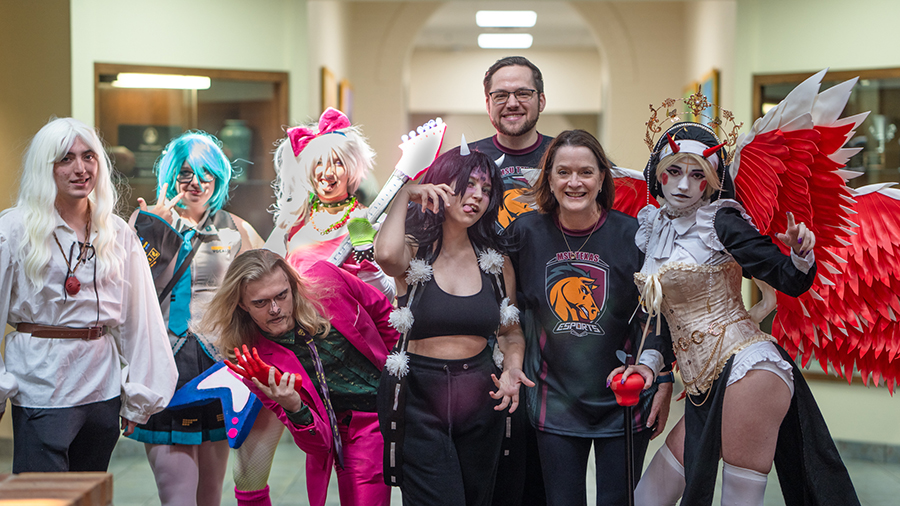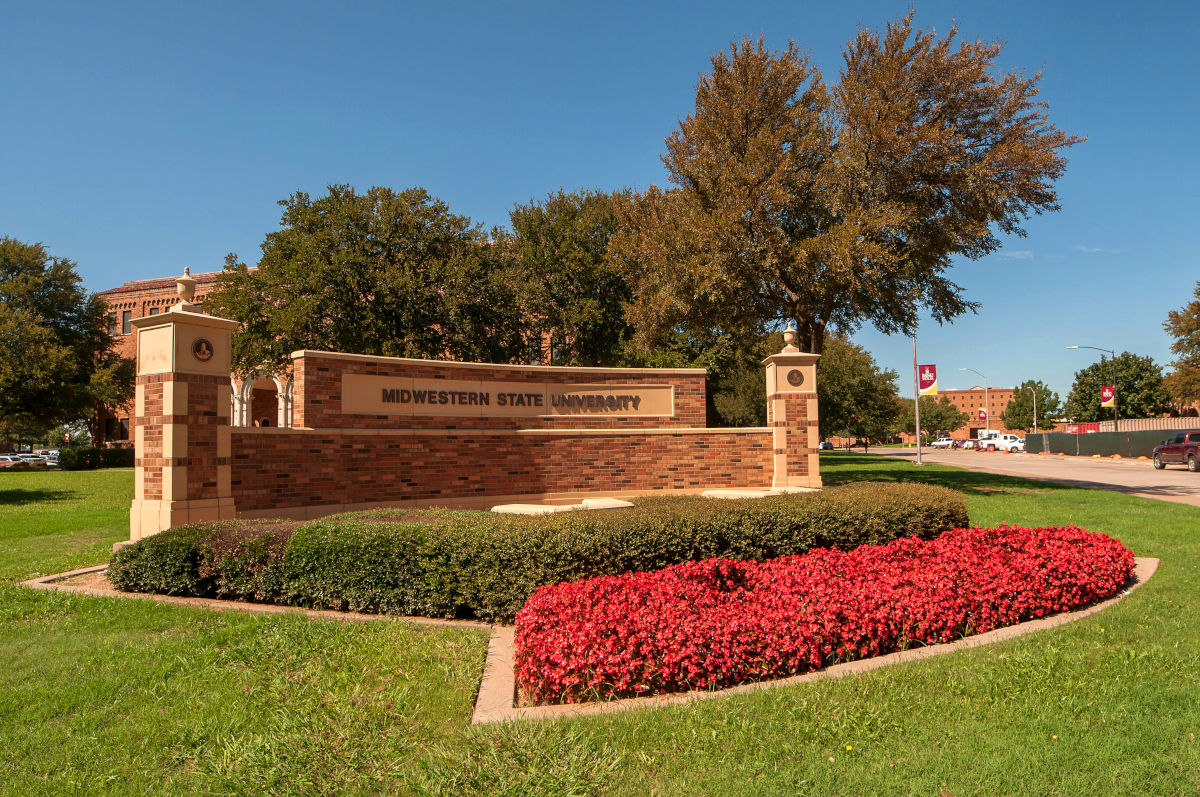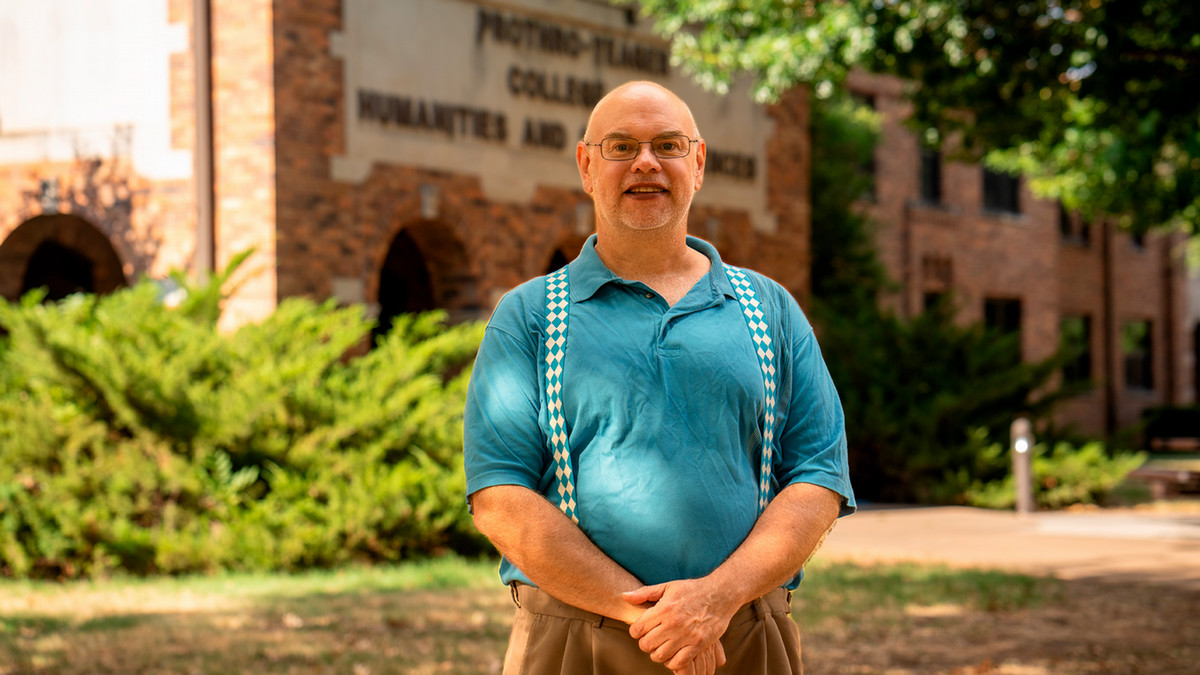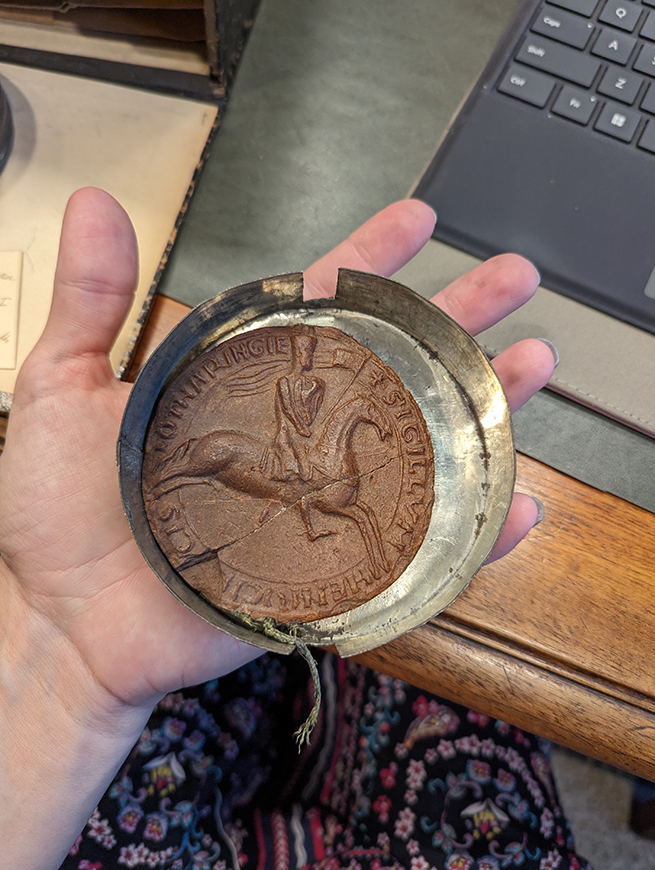Carnes Fellowship enables professor to research medieval health care
During the summer of 2023, Tiffany Ziegler, newly-named dean of the Dr. Billie Doris McAda Graduate School, traveled to Brussels, Belgium, where she researched the archives at Saint John’s Hospital. She focused on the sisters who tended to patients and their role in medieval hospital care.
Her research will help her complete a book on early hospital care where she will demonstrate that Saint John’s and the sisters were not only vital to the people of the city but that the hospital also became the model for later medieval municipal hospitals. It followed the pattern of the establishment of medieval charitable institutions in the High Middle Ages but later diverged to become the archetype for Christian hospitals.
Ziegler was the 2023 recipient of the Janes Spears Carnes Faculty Fellowship in Creative Endeavors, which enabled her to take the spring 2023 semester away from the classroom to process her research. The fellowship, made possible by a gift from Carnes, is a support grant for faculty in creative fields so they might take a semester off from teaching to enhance their research, artistic endeavors, and teaching. It supports faculty activities and their replacement in the classroom for one semester.
“In addition to time afforded me time to visit these archives, the fellowship provided a much-needed respite from teaching and committee work, which in turn allowed me to focus on research,” Ziegler said.
Ziegler was a doctoral student when she stumbled on a document, the Cartulaire de l’Hôpital Saint–Jean de Bruxelles (Actes des XIIe et XIIIe Siècles), ed. Paul Bonenfant (Brussels, 1953). “I did a primary source analysis on it and have been studying the hospital ever since,” she said.
This led to Ziegler’s first monograph on the hospital, Medieval Healthcare and the Rise of Charitable Institutions: The History of the Municipal Hospital (Cham: Palgrave, 2018). Medieval studies have developed into Ziegler’s specialty, and she found that not many people had researched medieval health care. She wanted to recover the history of the women who served in the hospital and restore their place in the institution’s historiography.
Ziegler searched the documents in the hospital’s archives for mentions of women – a challenging task as they were written primarily in French and Latin, with some in Flemish and Dutch. She took ‘thousands” of photos of these documents. “It was exciting to see these records that have rarely been viewed since they were written,” she said. “Many of the documents bore the seal of public figures of the day. Some even have the lead seal of the Pope, such as that of Pope Gregory IX.” (1227-1241)
When she found references to women, she could look deeper for the roles played and answer questions such as how women interacted with others. “I can recover those who worked there and by that see that there are other women who had power,” she said. “We have a view that women in the Middle Ages (~500-1500 AD) were silent and oppressed, but they were pretty powerful. These documents show that they had power.”
Ziegler’s research shows that the institution of the hospital is as old as civilization itself. Care for the sick and injured was overseen by temple healers in ancient Egypt, India, and China, while institutions for those afflicted by various maladies could be found in Greek, Roman, and Arabian communities. Similar institutions of the Middle Ages, however, took on a different character than their ancient predecessors and near-eastern contemporaries.
Ziegler said that the central Middle Ages brought about a resurgence of trade and a blossoming of cities teaming with inhabitants. Crowded in the confines of a city, the poor and sick became increasingly visible. For Christian medieval societies, institutional charity was a necessity set forth by the religion’s dictums – care for the needy and sick was a tenant of the faith, leading to a unique partnership between Christianity and institutional care. They took to heart Jesus’ teachings that those who provided care would find eternal salvation: “I was sick and you took care of me” (Matthew 25:36). The hospital was reborn as a uniquely Christian institution. The Hospital of Saint John in Brussels is an example of those developments.
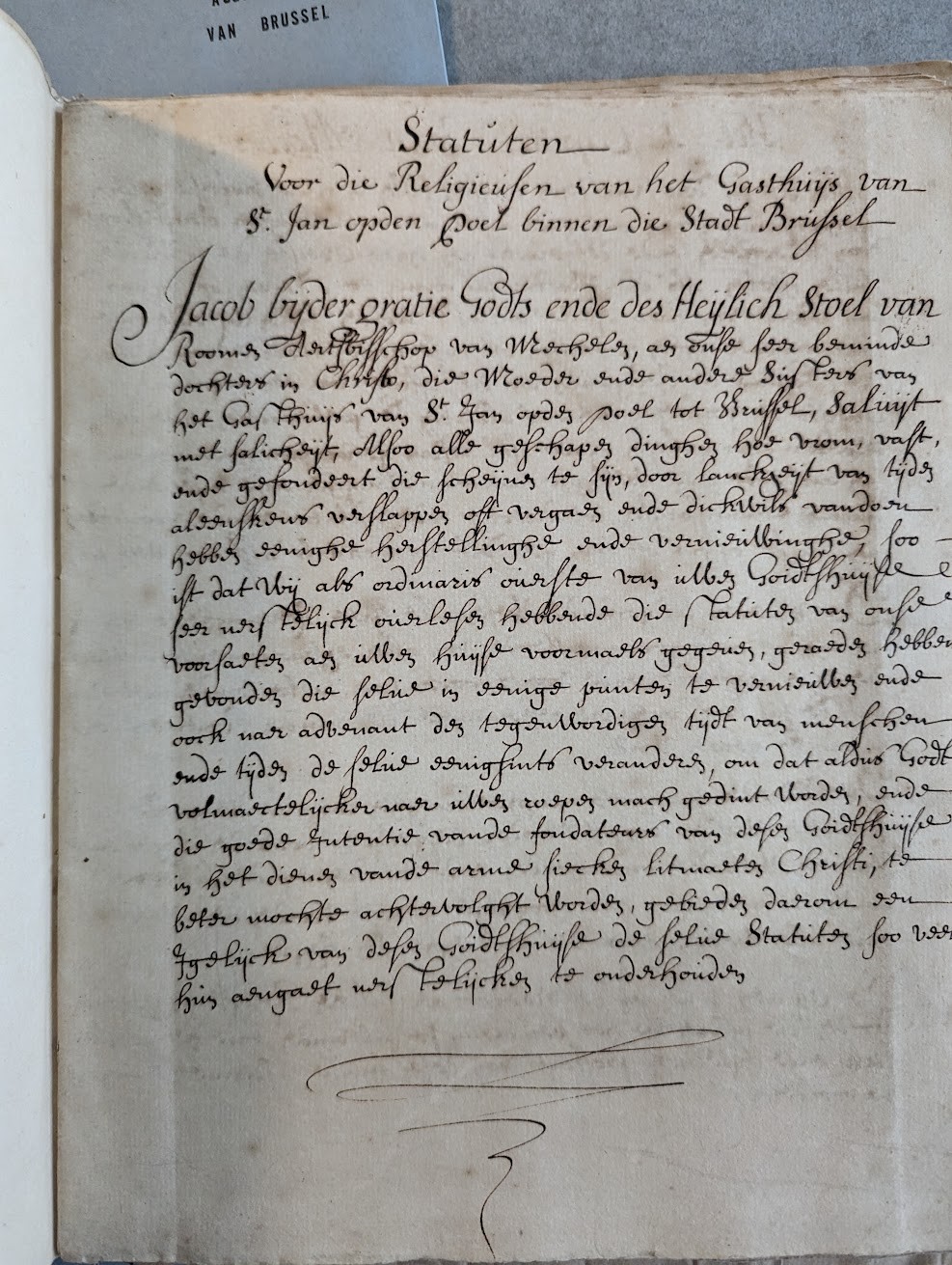
One of the more “modern” documents Ziegler studied. This “Statuten” is from 1652.
Ziegler’s research Beyond Exceptionalism 2018 was previously published. Her monograph, Medieval Healthcare and the Rise of Charitable Institutions: The History of the Municipal Hospital, was published by Palgrave MacMillan.
The upcoming book will be published by Brepols, and she has an August 2025 deadline.
“I’m invigorated by the fellowship,” Ziegler said. “I get to tell the history of these women who have been neglected and scoffed at. I am grateful beyond words to Jane Spears Carnes for establishing this generous gift and for helping to advance my scholarship. These women were so inspiring and I get to share that with my students.”

